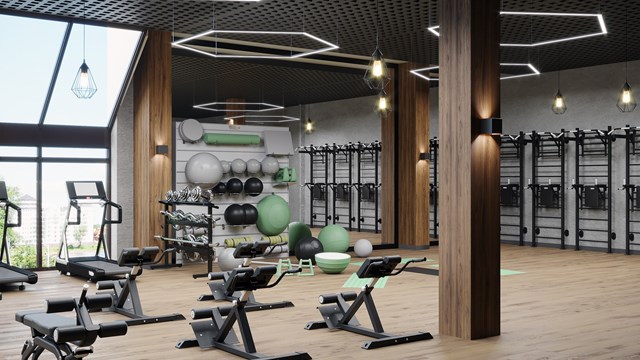
It’s been a very rough few years for the real estate market in Chicago—the ongoing recession and sluggish resale market are unfortunately still news and both buyers and sellers are watching the situation closely for any signs of improvement. But how does next year look? Is 2013 looking up, staying flat or will it slide further into grim territory?
Location, Location, Location
“I’m going to sound like a broken record, but it is all about location,” says Richard F. Klawiter, partner and chair of DLA Piper LLP, a real estate law firm in Chicago. “For example, sales in the Lincoln Park condo project have been quite brisk, and the sales prices per square-foot have been solid.” Lincoln Park 2520 is a three-building, high-end condominium project and Chicago’s first major condo project in two years.
Steve Bloomberg, a principal and shareholder at the law firm of Chuhak & Tecson, P.C. in Chicago, says that the area’s real estate market and the surrounding suburban area have improved over the last six months. “However, the increase in the prices for residential homes and the demand for housing has been uneven depending on the location within the city of Chicago and the location within the suburbs,” he says.
Ilene Collins, chief executive officer of the Apartment People brokerage in Chicago, says that this year has definitely been an interesting time, not only for sales but for rentals, too.
“If you are a first time buyer, you may be in the best position of all,” says Collins. “That is, if you have the funds to put enough down. I believe you have to have the money to be loaned the money, but if all is in place, you could buy at the lowest prices in 20 years and for the lowest interest rates in 20 years. While there are less properties on the market than in years back, more and more are being sold while sitting on the market less time than in years back.”
On the other hand, Klawiter says that there is a lot of product still to be absorbed at lesser desired locations. “Until that happens, it will largely be a matter of discriminating buyers having lots of options,” he says. “New construction condo projects are almost non-existent. Pre-sales requirements are high, financing is challenging and the capital markets’ interest in new condo projects is also almost non-existent.”
Eric Enloe, managing director of Chicago-based Integra Realty Resources, which offers commercial real estate valuation, counseling and advisory services, says that in the downtown area and the near-in suburbs there is a general feeling that the market has bottomed out and the market is stabilizing.
“In the downtown area, in some instances I have been informed about very competitive bidding for condominium units,” he says. “The outlying suburban areas of Chicago have not reached a bottom yet and are still trying to reach stabilization. In these outlying areas, there are some many options due the amount of available land for development (for new homes) and also a large supply of existing homes that are available.”
When it comes to Chicago’s rental market, Collins says that it’s a fantastic time to be a property owner. “The owners have a low vacancy rate and are finally enjoying higher rents and more income,” she says. “It is a time when tenants are having a difficult time finding exactly what they want on the market, and nothing stays on the market very long. More and more tenants are fighting for fewer properties and, unfortunately in the highly-saturated rental areas, we didn’t see the developers and builders creating new inventory. When people are trying to make sure they are being fiscally responsible in tough economic times, they tend to save money and not move as often as in years past. Our agency has seen more and more customers coming in truly needing help finding the vacancies that fit their needs.”
In terms of multifamily, Klawiter says it’s a different picture. “The apartment market is strong and the sector is poised to outperform other property types,” he says. “The strength is fueled by low levels of new deliveries, a continued shift from home ownership to renting, positive demographic trends and slow, but steady employment growth. As new supply deliveries noticeably increase by later this year and early next year, they will have a direct impact on market fundamentals. Demand will keep pace with the market, particularly as employment increases.”
Even with brisk condo sales and a better market for buyers, Bloomberg says that potential purchasers still have several concerns. “Many are still concerned that the market values have not bottomed out and they are waiting to purchase,” he explains. “Other prospective buyers are concerned that they may not be able to maintain their job or get a better job to fulfill their mortgage obligations. Still others are waiting on the sidelines for the general economy to pick up before making a home purchase.”
Bloomberg says that some of those who are buying now are also concerned that property values and interest rates may rise, so they are trying to get a jump on the market and take advantage of buying a house or condominium now.
Incentives, Anyone?
In a tough economic and real estate market, incentives are needed to help encourage developers to develop and buyers to come in and buy.
“The city and the state remain aggressive but not in the areas and locations where incentives would be warranted or even eligible,” says Klawiter. “Incentives tend to be limited to promoting projects in sub-standard locations and/or to promote and support affordable housing. Incentives in for-sale and multifamily projects in strong locations are almost non-existent and tend to be available only as a restructuring or work-out tool where development has stalled or been unsuccessful.”
In addition to developer incentives, over the last few years, there have been a host of buyer incentives at developments, used to entice buyers to seal the deal. Examples include a $10,000 to $15,000 incentive from The Partnership for New Communities applied towards down payment and closing costs. Some developments offered a few months of free living, while others offered financial credit for furnishing the units. “In terms of individual buyers, first-time homebuyer programs at local, state or even federal levels exist but are used typically on the margins, if at all,” says Klawiter.
Crystal Ball
With 2012 soon drawing to a close, how do these Chicagoland real estate professionals see prices, availability, buyers' expectations and demands, etc. going in the next year or two? If only we could look into the future with our own Cooperator crystal ball and get a clear view of the area in the next few years.
What’s the long view of the region as a place to live in general? Has the recession leveled the playing field somewhat for young families, singles, and other non-millionaire folks? And finally, is it a more feasible place to buy property now?
“That’s the $64,000 question,” says Klawiter. “Time will tell. Good product abounds for first-time homebuyers, but banks have tightened underwriting and valuation standards and this often offsets the perceived value a first time homebuyer can expect in many markets. Buyers and businesses remain bullish on Chicago, especially given demographic trends and increasing employment. For every buyer seeking an opportunity, there are sellers coming to grips with lost value in the units they would be inclined to sell. Valuation is still difficult.”
Klawiter says that there are promising developments on the horizon, including Museum Park, a 62-story high-rise located in Chicago’s South Loop.
“They are coming online with Related Midwest taking over the marketing and sales,” he says. “Their launch will be successful because of location, the strength and expertise of Related Midwest and the quality of the units.”
However, Klawiter expects this success to be an exception. “But if it achieves the success I expect, it will also be a model to replicate,” he says. “Unlike multifamily developers and their equity partners, who can obtain reasonable financing from a host of sources, including Fannie and Freddie and even insurance companies, condo developers are burdened. Raising rents will be more difficult for old product competing against just completed units, especially in low-barrier to entry markets.”
In an election year, it’s also important to focus on what the federal and state government need to do to help spur the real estate market along. “Insecurity is bad for the housing market and several issues need to be addressed to help spur growth,” says Bloomberg. “The federal and state governments must resolve questions on taxes and what is required to get businesses to expand and increase the amount of jobs that are available. Once some of these insecurities are resolved, we are more likely to see a pickup in the housing market.”
Like Klawiter says, only time will tell how the market will pan out in the next 12 to 18 months following the presidential election and any pending economic changes that may affect the real estate market.
“Chicagoland remains a great place for all types of people to live—singles, young families, empty nesters,” says Enloe. “From the arts, music, sports, dining and entertainment, Chicago is truly one of the great cities in the United States. Pricing has decreased, making home buying more affordable. However, although home mortgage rates are low there are tighter qualifications in place. The key to Chicago remaining a great place to live is the employer strength. Chicago must continue to develop and diversify its employer base.”
However, from what the experts say here, if you have the money to buy, it might behoove you to check out the market now before interest rates go up.
Lisa Iannucci is a freelance writer and a frequent contributor to The Chicagoland Cooperator.






Leave a Comment